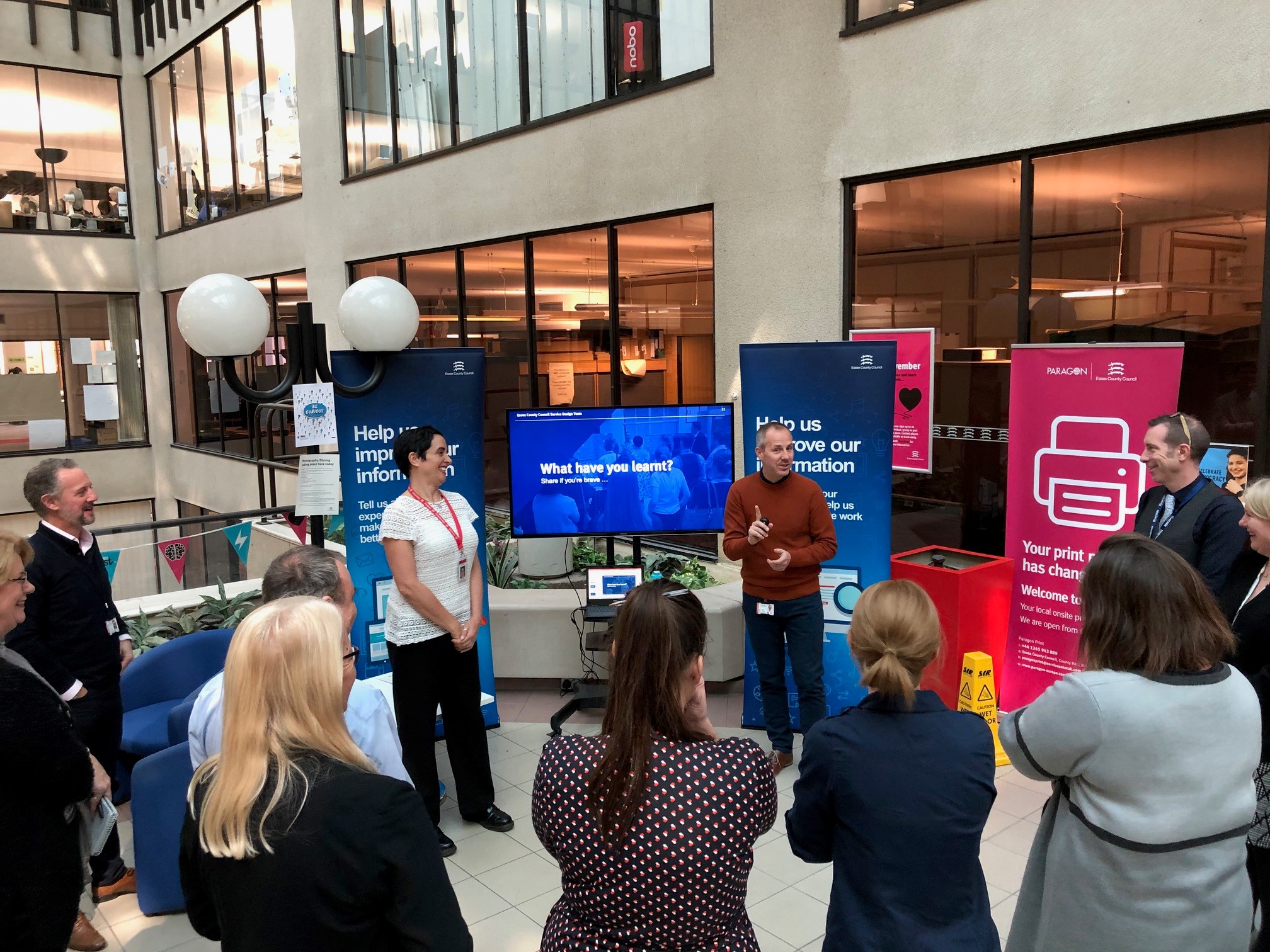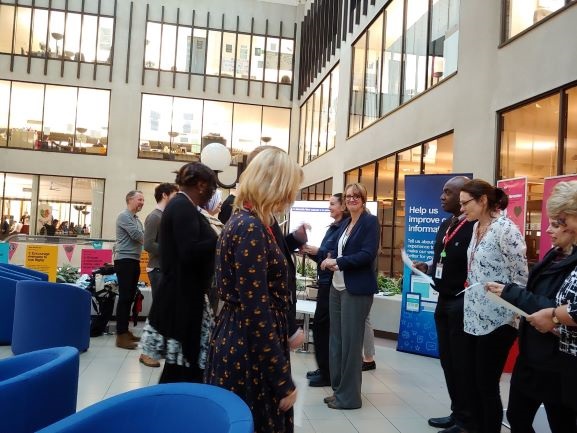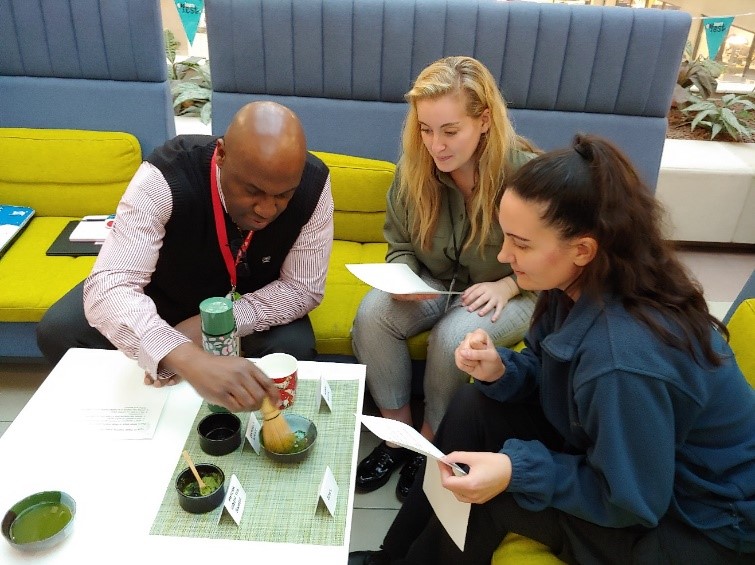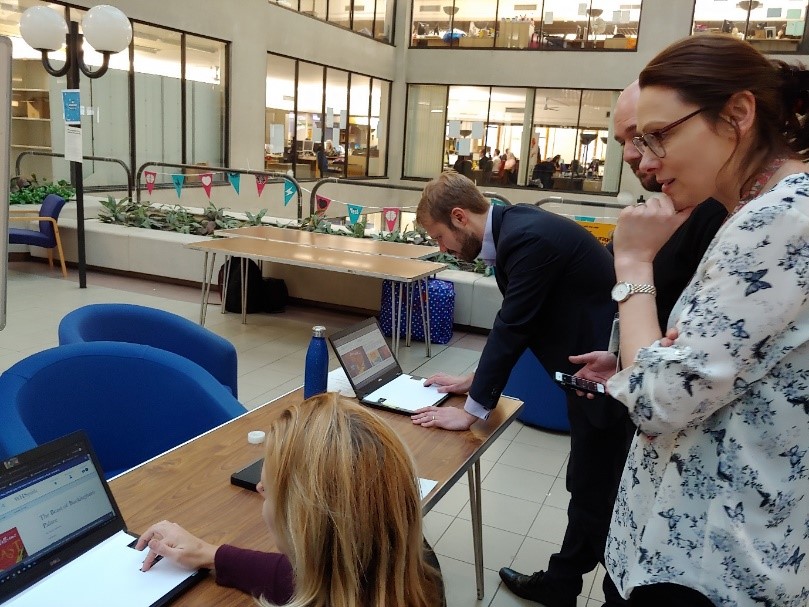
Essex County Council’s LearnFest is a festival of curiosity, learning and doing.
We took this as an opportunity to put our colleagues into the shoes (eyes and hands) of some of our users.
How could we get our colleagues to think like users?
As users, we’re happiest when services are designed to help us do things easily. As designers we try to do the hard work so users don’t have to.
So completing a few tasks like introducing themselves, sorting socks, making tea, ordering something online and matching people to their belongings should be a piece of cake, right? We got some of our participants try a few simple activities. Have a go.
Introduce yourself, it’s easy
Activity 1, just follow our instructions.
In the Service Design Team we think clear communication is VERY IMPORTANT to achieve your personal and corporate goals. For us prolixity is surplus to requirements, verbosity is verboten and waxing lyrical will get you nowhere.
To further illustrate how these points are germane to participants in our first activity we would like you to INSTRUCT your fellow colleagues to arrange themselves according to a number of different factors. These will include their total tenure within the organisation and whether it is odd or not odd.
Getting people to understand what they were being asked to do was challenging. The complex instructions focused on the team and the team’s goals. They weren't much help to our participants.
Luckily, we'd written some short, plain-English instructions so eventually we all knew who we were.

Dyslexia simulation
Task 2, make a cup of matcha tea.
To simulate dyslexia we jumbled or obscured some words and left our participants to try and come up with a halfway decent cuppa. They didn’t manage it. Some of them were brave enough to try their creation. Most, including a trained chef, were left frustrated and unrefreshed.

What macular degeneration feels like
Task 3, sorting socks.
We gave our participants glasses that mimicked the effects of macular degeneration and asked them to sort socks. Our participants found that they started to rely on the feel of the socks rather than the look or colour.
A screen looks and feels the same no matter what’s on it. So as a user of digital services this isn’t an option.

Motor skill impairment
Task 4, buying a something online
People with impaired motor skills rely on the keyboard rather than a mouse to complete online tasks. So, we asked our participants to buy a photo frame from an online store using only the tab and enter keys.

Nobody managed to complete the task. We found later it was impossible to go through the steps on this website without using a mouse. Customers with accessibility issues will probably buy somewhere else.
Imagine if that was a resident trying access the services of their local authority? They wouldn’t have that choice.
Do you really know your users?
Task 5, match the things to the people
We got participants to match 16 pictures of people with 16 pictures of what was in their handbags. The people were different ages, races, shapes and sizes, and some of the things they had in their handbags were unexpected.

No one managed to match more than 6 people to the contents of their handbags. The wool and needles didn’t belong to the old lady. The glittery stars and stripes underpants didn’t belong to the bearded man in the checked shirt.
We can’t make these assumptions when we’re providing services. We need validate or challenge through user-testing and research. One thing is guaranteed, people will always surprise you.
Over to you
Through these activities, the participants started to think like users with different needs and abilities. They also seemed to enjoy themselves which stimulated thought. We hope it will encourage our participants to bring some user-centred thinking into their everyday lives.
Here’s what they thought:
“it was fun and interactive”
“easy to make assumptions about what we think is typical”
“definitely a reminder to think about people’s experiences, especially online”
“challenging, stereotyping, and looking at things differently”
4 comments
Comment by Mr M P Cole Esq posted on
That’s sound like a great session - woo!
Comment by Caroline posted on
Thank you Mr Cole. Sorry you missed it - but there's always next year!
Comment by Emma Francis posted on
Very thought provoking. Even though I wasn't able to attend (being behind the scenes at LearnFest) reading your blog and understanding the activities in more detail has definitely given me pause for thought.
Thank you again for being part of ECC's first ever LearnFest!!
Comment by Caroline posted on
Thank you Emma. We enjoyed it too and we hope you can join us next year!